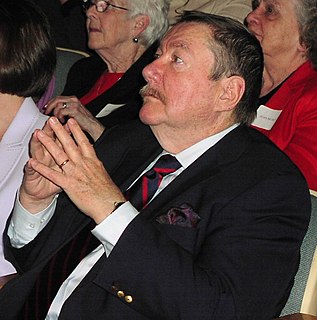A Quote by Alfred Adler
No experience is a cause of success or failure. We do not suffer from the shock of our experiences, so-called trauma - but we make out of them just what suits our purposes.
Related Quotes
We can all make powerful choices. We can all take back control by not blaming chance, fate, or anyone else for our outcomes. It’s within our ability to cause everything to change. Rather than letting past hurtful experiences sap our energy and sabotage our success, we can use them to fuel positive, constructive change.
No pain that we suffer, no trial that we experience is wasted. It ministers to our education, to the development of such qualities as patience, faith, fortitude and humility. All that we suffer and all that we endure, especially when we endure it patiently, builds up our characters, purifies our hearts, expands our souls, and makes us more tender and charitable, more worthy to be called the children of God . . . and it is through sorrow and suffering, toil and tribulation, that we gain the education that we come here to acquire and which will make us more like our Father and Mother in heaven.
Each day that we live, we're taking in new information, ideas, concepts, experiences, and sensations. We need to consciously stand guard at the doors of our minds to make sure that whatever we're allowing to enter will cause our lives to be enriched, that the experiences we pursue will add to our stockpile of possibility.
Like our physical bodies, our memory becomes out of shape. As children, we are constantly learning new experiences, but by the time we reach our 20s, we start to lead a more sedentary life both mentally and physically. Our lives become routine, and we stop challenging our brains, and our memory starts to suffer.
So you think that you're a failure, do you? Well, you probably are. What's wrong with that? In the first place, if you've any sense at all you must have learned by now that we pay just as dearly for our triumphs as we do for our defeats. Go ahead and fail. But fail with wit, fail with grace, fail with style. A mediocre failure is as insufferable as a mediocre success. Embrace failure! Seek it out. Learn to love it. That may be the only way any of us will ever be free.
We're painting the same people all our life - it's just the way we look at them that changes. If you experience trauma, you can speak about it in so many different ways. You can speak about landscape, you can speak about your food; it's always different. Trauma is the beginning of life as an artist.





































